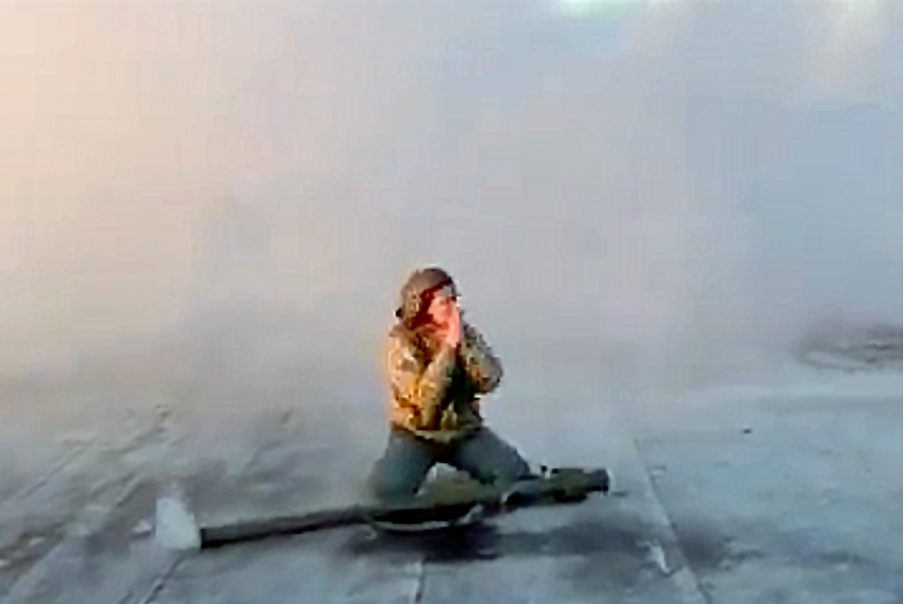For weeks, Ukraine has had to live under intermittent darkness.
Due to renewed Russian strikes on Ukrainian power plants – seven times this year at the time of writing – Ukraine’s energy generation capacity has reached a historical low, where more than half of the country’s power generation capacity is now in ruins, according to recent reports.
JOIN US ON TELEGRAM
Follow our coverage of the war on the @Kyivpost_official.
As a result, Ukraine has had to introduce a 60 percent increase in electricity tariffs, bumping the rate from Hr.2.6 ($0.07) per kilowatt hour (kWh) to Hr.4.3 ($0.11) per kWh starting June 1 in what the Ministry of Energy called a “difficult but necessary step.”
Everyone in Ukraine also had to make do with power restrictions in the form of a rolling blackout schedule, in which power for industrial and residential users is available for four to six hours a day, two hours at a time, in most areas – that is, if the total consumption does not exceed the limit, which would cut off power altogether.
This is what the new reality looks like for Kyiv Post’s reporters and editors outside the newsroom.
“Summer makes it somewhat easier to cope. However, the thought of winter is frightening.”
Alisa Orlova, Managing News Editor

Over the past few weeks, there have been days when we had no electricity in the apartment for 8-12 hours at a time. Food in the refrigerator spoils quickly, and meat from the freezer must be thrown away the next day after a long shutdown.
Having a two-year-old child at home made it all the more difficult – she needs freshly cooked food all the time. To manage, we bought a portable gas stove with canisters and a huge power bank to charge phones and laptops.
Despite these challenges, summer makes it somewhat easier to cope. However, the thought of winter is frightening. In Kyiv, the sun sets around 4 p.m. in winter, and with power outages, we would have to spend most of the day in the dark. Heating is another major concern – will we have it at all?
On the plus side, we live only on the sixth floor, so it’s not too difficult to climb without an elevator. However, our neighbors on the 20th floor and above are worse off. They not only have to manage without an elevator but also lose their water supply during blackouts.
“I have my fingers crossed every time I get in [the lift] these days.”
Steve Brown, Senior Writer and English Language Editor

I live on the 19th floor so it’s a challenge going up or down, which I try to avoid doing, but sometimes you have no choice – kids need to go to school, clubs, doctors, dentists, etc. Always seems a risk to use the lift if a programmed cut is due.
Fortunately, building management gets a warning from Kyiv Energy and switches them off 5-10 minutes before it’s due. There’s always the risk of an unprogrammed shutdown – I have my fingers crossed every time I get in these days.
I bought a Bluetti AC200 max power bank in 2022 which runs some lighting, laptops, charges iPads and phones, and the coffee machine. I have a big portable lamp for kids to do homework by and several torches – essential if we have to walk down 19 flights as the stairwell is in darkness.
Portable gas stoves for food if necessary. Also got my internet provider to install a gizmo that lets us have wifi in part of the apartment when the mains are off – cuts in automatically. Could be worse.
“I have three elevators in my 25-story building, but none of them work during power outages.”
Tymur Dubovyk, Ukrainian Edition News Editor

“High-rise buildings have their own system of adaptation to life with power outages. I have three elevators in my 25-story building, but none of them work during power outages.
In addition to stacks of warning fliers and graphics plastered across the entrance and halls, anonymous volunteer neighbors decided to place small cardboard boxes in every elevator labeled “Care Box. Might come in handy if you're stuck.”
That box can be used by anyone who is unlucky enough to be in the elevator during a power outage.
In fact, I noticed that the contents of these boxes change from time to time, but this is not surprising, since mass blackouts have started in Ukraine since May 15.
This time, I saw shortbread cookies, a pack of wet wipes, several water bottles, trash bags, antiseptic, and a blister pack of blood pressure and headache pills. Other times, you could find sugarless marmalade, dry tissues, peppermint lollipops and biscuits in a package.
“Now we are managing, but there’s always this lingering concern about how it’d go in the winter.”
Leo Chiu, News Reporter
These days, I make sure I have a portable light on whenever I start taking a shower. You don’t want the light to go out on you when you are in the middle of a shower (thank God we still have a stable water supply).
Blackouts are never pleasant, but I think folks here are adapting quickly. No light? Portable lamps. No stove? Get one of those camping gas stoves. No internet? Plug in a power bank. But unfortunately, backup power for the internet in my building only lasts for four hours. Once that’s gone there’ll be no internet even if the router is on, and the traffic surge of mobile networks during blackouts means it’s basically unusable.
We also have one of those mobile power stations that can power up the lights in the flat, and we just charge it up when the power comes on. Now we are managing, but there’s always this lingering concern about how it’d go in the winter.
Lack of power? That I can probably manage. Lack of heating? I guess my body fat will keep me alive for a while. But lack of water? Or the lack of all three? I suppose that’s what everyone is concerned about, including myself.
You can also highlight the text and press Ctrl + Enter











